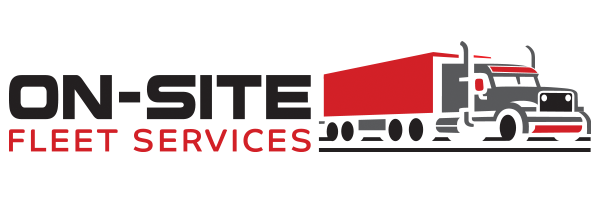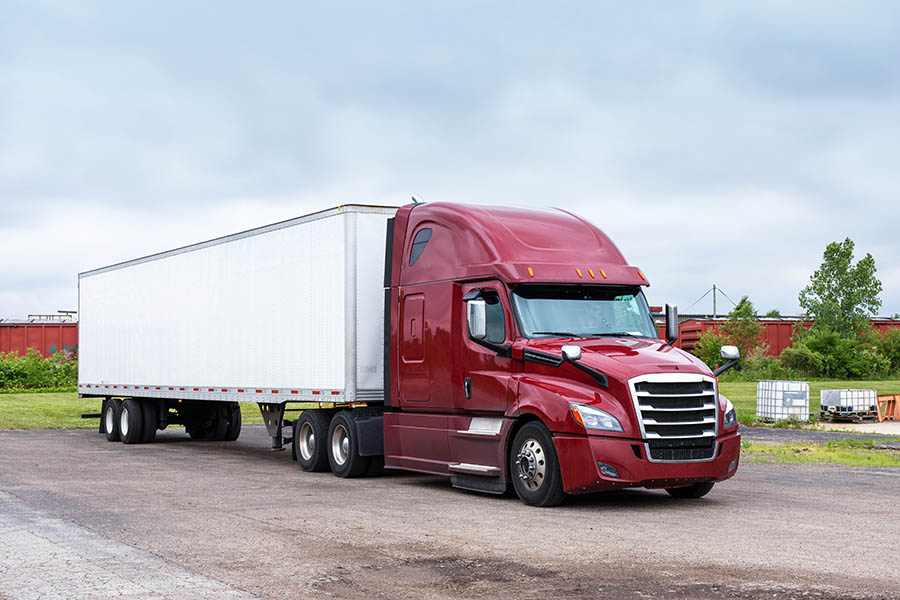There is no worse feeling in the world than having an 18-wheeler break down on the road when time equals money—so here is what to watch out for when driving a tractor-trailer
On-Site Fleet Services has just about seen it all when it comes to commercial trucking and fleet operation blunders. We say blunders because quite often tractor-trailer and heavy-duty truck drivers will forget to take good care of some of the most important systems in their vehicle. We hope to share some wisdom to save you the headache of getting stranded on the road. After all, we are as good as the decisions we make on and off the road.
Let’s start with the common-sense perspective that we all know tractor-trailers are a behemoth of a vehicle with mechanical, electric and other types of systems with countless parts. That alone should tell you that your tractor-trailer has more in common with a Boeing 747 Jumbo Jet than with any other vehicle on the road. And it is that complexity that makes it even more important to do regular inspections and keep your preventive maintenance appointments.
While there are hundreds, if not thousands, of items that can go bad on a tractor-trailer due to wear-and-tear, exposure to weather and other malfunctions, these are seven areas of concern for every truck driver:
- Brakes: Your brakes are much more than a device for bringing a heavy vehicle to a stop. Brakes are your most important safety device and preventive maintenance is of the highest importance to not only maintain control of a tractor-trailer, but also to ensure the safety of other around you on the road. The brake system in a heavy-duty vehicle is a complex system designed for the rigors of the heavy and sluggish maneuvering of a tractor-trailer.
- Radiators: This is another critical component of your tractor-trailer, helping manage engine temperature as a cooling device. Over time, radiators are prone to developing leaks and other issues that can lead to overheating. There is nothing worse than an overheated tractor-trailer and ending up in that situation can lead to major repairs that can leave the vehicle out of commission for weeks or months.
- Tires: Where the rubber meets the road if one of the most important factors in tractor-trailer safety. Maintaining control of a large commercial truck requires effective contact with the surface where it rides. Check for tire pressure issues and the integrity of the tire, making sure there is no physical damage that can lead to bigger issues.
- Lights: These are an important element for both safety and visibility on the road. Whether you have faulty or broken lights, you need to be aware of anything that can challenge safety. Don’t wait until you get pulled over for having blown or broken tail lights, marker lights, or other electrical system components.
- Fluids: This one is an often-missed reason for ending up in the shop with major repairs. Many of your tractor-trailer systems use oil, coolant, water, or other fluids designed to keep your complex engine running smoothly. Checking for fluid levels regularly, including DEF levels, can ensure your engine remains “healthy” and performing as expected, even after years of service.
- Windshields: The window to the road is an important element of a tractor-trailer and has a direct effect on the safe driving of such large vehicles. The road is treacherous and you can easily crack a windshield with a pebble, which can be a hindrance when time is tight and demand is high. Check your windshield wipers often since you need them to perform at their best during a heavy downpour or thunderstorm.
- Yourself: A healthy driver is likely to make the best decisions when behind the wheel of a large tractor-trailer. Getting enough sleep and keeping hydrated are good ways to take control of your health. Remember, when you drive a semi-truck or heavy-duty vehicle, you need to be in your best focus and concentration to make safety calls and decisions in the blink of an eye or risk causing an accident.
Of course, On-Site Fleet Services knows there are plenty of other components subject to maintenance challenges. After all, if you drive a truck often the wear-and-tear will take an effect as early as within a few months of intense driving. That’s why we love to work with fleets of all sizes to serve as a trusted partner that can deliver quality preventive maintenance, but also an opportunity to keep your vehicles in top operational condition.






